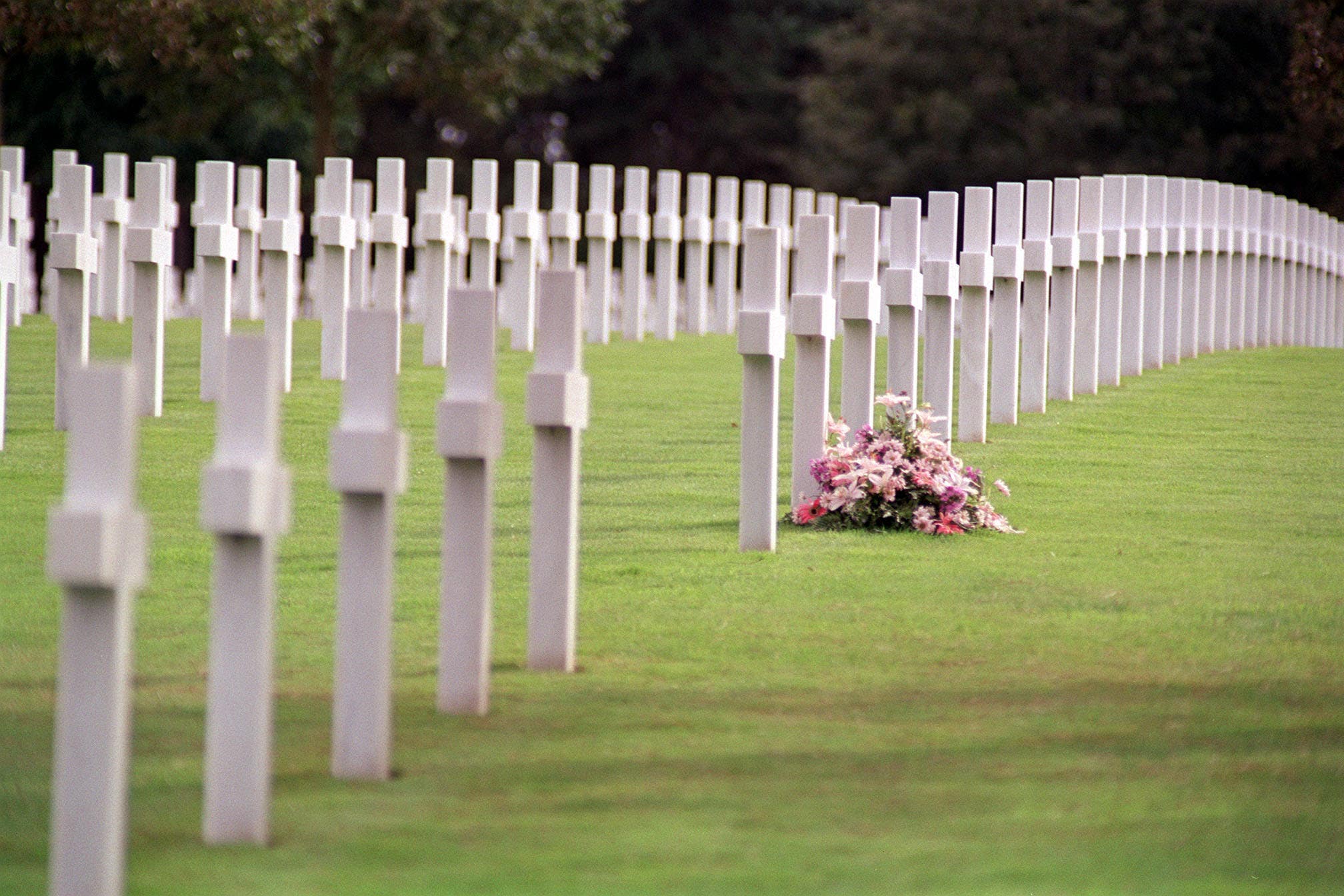The US sent the most D-Day troops – and suffered the highest losses
From the 73,000 US troops who landed on the beaches of Normandy on June 6, some 1,465 were killed.

Your support helps us to tell the story
As your White House correspondent, I ask the tough questions and seek the answers that matter.
Your support enables me to be in the room, pressing for transparency and accountability. Without your contributions, we wouldn't have the resources to challenge those in power.
Your donation makes it possible for us to keep doing this important work, keeping you informed every step of the way to the November election

Andrew Feinberg
White House Correspondent
D-Day is one of the key events that defines how the US sees its place in the world.
The invasion of Nazi-occupied France on June 6 1944 was the second time in less than 30 years the US had been called on to intervene in what many viewed as a European war.
The Normandy landings were a decisive turning point in the Second World War, but they came at a huge cost.
The US supplied more troops for the first day of fighting than any of the other Allies, and lost more as well.
From the 73,000 US troops who landed on the beaches of Normandy on June 6, some 1,465 were killed.
Hundreds were lost in the day’s fiercest fighting on Omaha Beach as they scaled steep cliffs in heavy combat gear, drawing enemy fire.
The US reserves a special place in its collective memory for the men who died many thousands of miles from home to bring freedom to all the people of Europe.
General Dwight D Eisenhower, the mastermind behind the invasion, was hailed a hero when he returned to the US, later becoming president.
Hollywood has adapted stories of D-Day heroism and fortitude for both the big and small screen, from 1962’s The Longest Day to Steven Spielberg’s 1998 epic Saving Private Ryan and the 2001 TV mini-series Band Of Brothers.
US President Joe Biden is expected to attend D-Day 80th anniversary commemorations in Normandy next week before making his first state visit to France.
An international ceremony at Omaha Beach will honour the nearly 160,000 troops from the UK, the US, Canada and other nations that landed in Normandy on June 6 1944.
The Prince of Wales will attend the service.
French President Emmanuel Macron’s office said Mr Macron will host Mr Biden and his wife Jill on June 8.
Then-US president Donald Trump attended events in Portsmouth and France to mark the 75th anniversary of D-Day in 2019.
The Normandy campaign had a special significance for Mr Trump’s predecessor, Barack Obama, who attended the 65th and 70th D-Day anniversary events at the landing beaches.
Stanley Dunham, the grandfather who helped to raise him in the absence of his Kenyan father, crossed the Channel six weeks after D-Day and landed on Omaha Beach.
He then moved with the Allies through France as part of General George Patton’s Third Army.
Subscribe to Independent Premium to bookmark this article
Want to bookmark your favourite articles and stories to read or reference later? Start your Independent Premium subscription today.